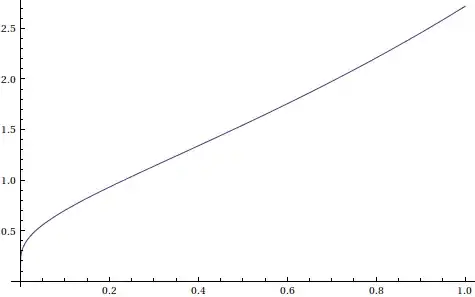I want to find an simple analytic expression for $$\sum_{k=0}^\infty \frac{\log(k+1)}{k!}.$$ Wolfram alpha just tells me this is approximately 1.55 (for natural log).
Equivalently, this is equal to $$e \cdot \underset{K \leftarrow \mathsf{Poisson}(1)}{\mathbb{E}} \left[K \log K\right]$$ (taking the convention that $0 \log 0 = 0$ for continuity). Surely this sort of expectation has been evaluated?
This has come up in trying to analyze the entropy of a random distribution. Any help would be much appreciated.
Another answer suggests using the fact that $\mathbb{E}[K \log K] = \frac{\mathrm{d}}{\mathrm{d}x} \mathbb{E}[K^x]$ evaluated at $x=1$. However, I don't know if this brings us closer to a simple expression -- I don't have a good formula for $\mathbb{E}[K^x]$ unless $x$ is an integer.
